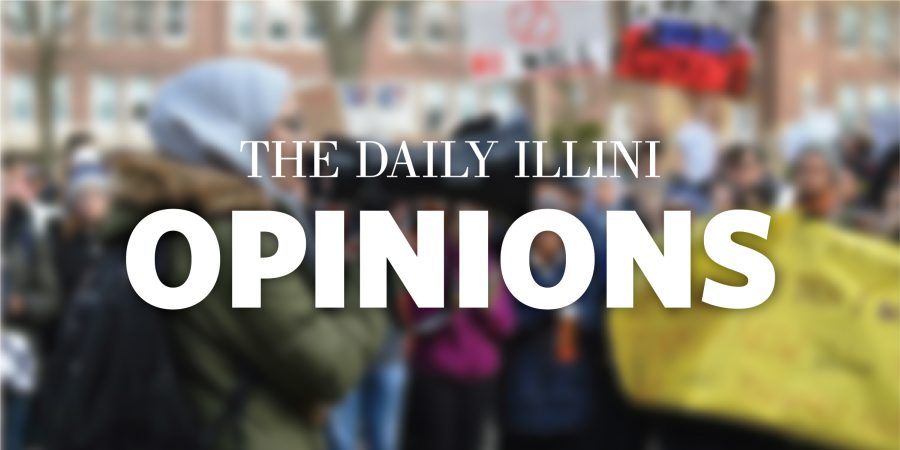Opinion | White House engenders geopolitical catastrophe | II
November 26, 2019
Hit by a barrage of bipartisan criticism on his administration’s foreign policy, President Trump’s ineptitude in his handling of Syria was underscored by his response.
Mixed signals from the president followed the initial announcement and its backlash. His ego prevents him from admitting wrongdoing, so he doubles down on bad policy while continuing to strive to rectify the situation, as not to lose all lifelines he has in Washington.
Initially, the president aimed to extenuate the situation by slandering the Kurds, saying they did not fight with us on the Normandy beaches in World War II, and they are “no angels.” He even insinuated that the PKK, and by extension the YPG, are worse than ISIS.
While strangely attempting to justify the foreign policy move by disparaging the Kurds, Vice President Mike Pence sought to broker a ceasefire in northern Syria. He negotiated a five-day ceasefire in the region by meeting all of Turkey’s demands, for which Trump takes credit. But this administration does not get to take credit for potentially fixing a crisis it created in the first place.
The agreement required that American economic sanctions halt and Kurdish forces flee the region. These Turkish demands were met so that bloodshed would stop. But conflicts that violated the ceasefire occurred and were downplayed by U.S. officials, although the number of skirmishes was notably less with a temporary ceasefire in place.
Get The Daily Illini in your inbox!
Although Turkey is a NATO ally of the U.S., the EU — of which most members are also part of NATO — has taken the Turkish aggression very seriously, threatening economic sanctions and an arms embargo against the instigator if it does not cease the assault on the minority group.
Trump’s threats toward Turkey have been quite odd as well. In a tweet, the president warned he would “obliterate the economy of Turkey.” Trump also released a letter he had penned to Turkish President Recep Erdoğan — a letter rightfully ridiculed for being simple and unprofessional — that demanded Erdoğan not be a “tough guy.” This only served to anger Erdoğan further; he reportedly tossed the letter in the trash.
Since then, the Kurds have aligned themselves with Russia and the Assad regime in Syria, the two main U.S. adversaries in the region. In other words, the ethics of sanctioning an ethnic cleansing aside, this move was strategically reprehensible as well.
Russia has wanted a foothold in the Middle East for a long time, a major reason why the U.S. became involved to begin with, and now the Trump administration has given them it. After years of progress, it appears as if this administration is ready to undo all the hard-fought advancement. The region will be left as destabilized as it was if not worse due to a quick and incautious withdrawal.
To make matters worse, Turkey seized the opportunity to strengthen its ties with Russia. Erdoğan met with Putin for six hours in order to discuss joint-control over the former Kurd-occupied region.
Perhaps, in the long run, America’s absence in the region will stabilize it more, but only after ceding all influence to an adversary. The region, which America fought in for the better part of a decade, now will be jointly-controlled by Turkey, Russia and the Assad regime with American-backed Kurds in exodus.
Strangely enough, the president keeps excitedly remarking upon the “capture” of Syrian oil fields by the U.S. military. Experts claim that long-term occupation of these oil fields and usage would constitute a war crime in violation of both international law and U.S. federal code.
Luckily for President Trump, he was able to secure a win in the region: the death of ISIS’s leader, Abu Bakr al-Baghdadi.
However, his delivery marred the opportunity for bipartisan praise. His formal announcement was saturated by politicized and controversial remarks.
Still, Al-Baghdadi’s death is a significant setback for ISIS.
Rather than deliberating judiciously, the Trump administration has heedlessly elected to betray U.S. allies and effectively sign their death warrant at the expense of stability in the region and American international leverage. Instead of reversing the mistake, Trump’s arrogance has prevented the government from doing damage control.
The White House is deserving of all the criticism this draws, and no matter how hard it tries to deflect or spin the decision it refuses to reverse, the administration is responsible for this needless violence. The buck stops somewhere, and today, it stops with the president.
Andrew is a sophomore in LAS.







